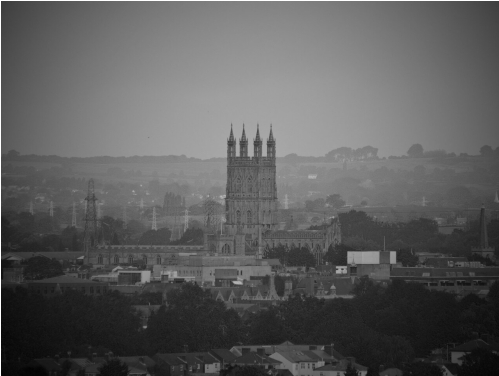
Gloucester residents are increasingly living in two worlds: their immediate personal space and the vast global online landscape, but the middle ground (the local community and neighbours), is quietly disappearing. This phenomenon, which sociologist Xiang Biao calls the erosion of “nearby spaces,” is changing how people in our historic city connect.
Walk through Gloucester’s neighbourhoods today, and the signs are there. Fewer people chat over garden fences, and historic pubs are closing at record speeds – even those in and around the Cathedral Quarter struggle. These were once community hubs, but residents are more likely to know someone’s Instagram handle than their actual name.
The pandemic did play a part in this shift, but the death of the high street is mostly to blame. In that, it’s a mixture of Amazon deliveries, work-from-home and a struggling economy.
The digital migration
The most visible casualty of this shift is Gloucester’s traditional social infrastructure. Community centres like Abbeydale Sports and Community Centre report declining attendance at regular events, while online communities centered around shared interests boom.
Age UK Gloucestershire’s social groups, which once drew dozens to weekly gatherings across the county, now compete with the convenience of digital connection. Young people, in particular, are forming meaningful relationships through gaming platforms and social media apps rather than through proximity-based encounters.
This digital migration isn’t inherently negative – it can be seen as filling a necessary gap. Many Gloucester residents have found genuine connections through online platforms, like social casinos and VR chatrooms, and these connections are as likely to be from around the world than from next door.
Virtual reality chatrooms allow people to socialize without leaving home, while social casino platforms create spaces where strangers can interact naturally around shared activities – much like the traditional pub quiz or bingo night, but from any living room in the city.
Rebuilding community in unexpected places
While traditional “nearby spaces” decline, new forms of local connection emerge. Some Gloucester residents have discovered that online platforms can actually boost local relationships rather than replace them.
For example, community Facebook groups and the Gloucestershire Community and Voluntary Action network facilitate everything from tool-sharing to organising street parties, while location-based apps help residents discover independent businesses along Westgate Street or events at Gloucester Guildhall they might otherwise miss.
The challenge of course lies in how these digital connections translate back into physical community engagement – because that cannot be replaced. Some local organisations are experimenting with hybrid approaches, like using online platforms to organise offline activities. Park run is a great example of this, as it’s just as much about socialising as it is getting fit. Today, it’s just as likely that you’re inviting fellow runners to your wedding as you are people from your workplace.
The “nearby spaces” that once defined community life are evolving, as is the high streets. This is perhaps why the bookies have persisted for so long, even during tough times economically – they’re a third space to hang around and chat. The question for Gloucester isn’t whether this change is good or bad, but how to replace the third spaces with meaningful connections.